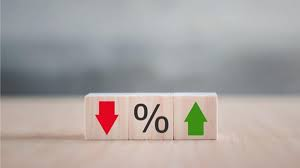When it comes to investing, conservative investors prioritize capital preservation and stable returns over high-risk, high-reward opportunities. If you’re a risk-averse investor seeking a reliable investment avenue, FDs should be at the top of your list. In this comprehensive guide, we’ll delve into the reasons why FDs are the go-to choice for conservative investors. And we will see how they can help you achieve your financial goals with peace of mind.
Get high ROI with 8.8% on Fixed Deposits. Invest today
The Safety Net of Fixed Deposits
Fixed deposits serve as a cornerstone for conservative investors seeking stability in their financial journey. Here are the key reasons why they are safe investment options:
Capital Preservation: Your Top Priority
As a conservative investor, your primary objective is to safeguard your hard-earned money. Fixed deposits provide a robust safety net for your capital, ensuring that your principal amount remains intact. Unlike market-linked investments such as stocks or mutual funds, FDs are not subject to the volatility of the financial markets. This means that regardless of market fluctuations, your invested amount remains secure.
Government-Backed Security
In India, fixed deposits offered by banks and post offices are backed by the government. This ensures an additional layer of security. Your deposits up to ₹5 lakh are insured by the DICGC, even in the unlikely event of a bank failure. This government-backed assurance further reinforces the safety of your investments.
Predictable Returns: The Comfort of Certainty
Fixed deposits offer a level of financial predictability that is hard to match. The key benefits of knowing exactly what your returns will be:
Guaranteed Interest Rates
One of the most appealing aspects of fixed deposits is the guaranteed returns they offer. When you invest in an FD, the interest rate is fixed at the time of booking. Further, it remains unchanged throughout the tenure of the deposit. This predictability allows you to accurately calculate your returns and plan your finances accordingly. Unlike other investments where returns are subject to market fluctuations, FDs provide a stable and reliable income stream.
Higher Returns than Savings Accounts
While fixed deposits are known for their safety, they also offer significantly higher interest rates compared to traditional savings accounts. On average, FDs provide interest rates ranging from 5% to 7% per annum, depending on the bank and tenure. In contrast, savings accounts typically offer interest rates between 3% to 4%. By opting for an FD, you can earn a higher return on your surplus funds without compromising on safety.
Flexibility and Liquidity: Tailoring FDs to Your Needs
Fixed deposits not only provide safety but also offer a range of options to suit your financial needs. Below are the key features that enhance their flexibility and liquidity:
Wide Range of Tenures
Fixed deposits offer various tenure options, allowing you to choose a time frame that aligns with your financial goals. Whether you have short-term or long-term investment horizons, you can find an FD that suits your needs. Tenures typically range from 7 days to 10 years. This gives you the flexibility to park your funds for a period that matches your liquidity requirements.
Premature Withdrawal Options
Fixed deposits are designed to be held until maturity. Still, most banks offer premature withdrawal facilities to cater to unforeseen financial emergencies. In case you need to access your funds before the maturity date, withdraw your deposit, albeit with a penalty. The penalty is usually a percentage of the interest earned, ensuring that your principal amount remains intact.
Loan against FD
At most banks, you can obtain a loan against your fixed deposit without liquidating it. Plus, you can borrow up to 90% of your deposit amount while continuing to earn interest on the entire deposit amount. This feature provides you with liquidity without disrupting your investment plan.
Tax Implications and Benefits
Knowing the tax implications of fixed deposits is crucial for effective financial planning. The following are key aspects to consider regarding taxation and potential benefits:
Interest Income and Tax Deducted at Source (TDS)
The interest earned on fixed deposits is considered as ‘Income from Other Sources’. Additionally, it is taxable as per your income tax slab. If your FD interest exceeds ₹40,000 (₹50,000 for seniors), banks must deduct 10% TDS. However, you can submit Form 15G/15H to avoid TDS if your total income is below the taxable limit.
Tax-Saving Fixed Deposits
For conservative investors looking to save on taxes, tax-saving fixed deposits, also known as 5-year FDs, offer a lucrative option. Investments up to ₹1.5 lakh in these FDs qualify for tax deductions under Section 80C of the Income Tax Act. By investing in a tax-saving FD, reduce your taxable income while enjoying the benefits of a safe and secure investment. For those considering fixed income investments, these options provide a reliable avenue for long-term savings.
Planning Your FD Investments
Making strategic decisions about your fixed deposit investments is essential for achieving your financial objectives. The important considerations to help guide your investment planning are as follows:
Setting Investment Goals
Before investing in a fixed deposit, it’s crucial to define your investment goals. Are you saving for a short-term goal like a vacation or a long-term objective like retirement? Understanding your goals will help you choose the appropriate FD tenure and interest payout frequency. Let’s say you’re saving for a down payment on a house in 5 years. Then, a longer-term FD with quarterly compounding can help you maximize your returns.
Laddering Your FDs
Laddering is an investment strategy where you divide your investment amount into multiple FDs with different maturity dates. This approach offers several benefits for conservative investors:
-
Staggering your FD maturities ensures that a portion of your funds becomes available at regular intervals, providing liquidity when needed.
-
In addition, by diversifying your investments, you can effectively manage your portfolio of low risk investments.
-
As each FD matures, you have the opportunity to reinvest the funds at prevailing interest rates, potentially earning higher returns.
-
Laddering helps mitigate the risk of locking in your entire investment at a low interest rate. If interest rates rise, you can benefit from higher rates on your maturing FDs.
Using an FD Interest Calculator
To make informed investment decisions, it’s essential to calculate the expected returns on your fixed deposit. An FD interest calculator is a handy tool. It helps you estimate the maturity amount based on your investment amount, tenure, and interest rate. By plugging in different values, you can compare various FD options. Afterwards, choose the one that best aligns with your financial goals.
Here’s an example of how an FD interest calculator works:
|
Investment Amount |
Tenure |
Interest Rate |
Maturity Amount |
| ₹1,00,000 |
1 year |
8.8% | ₹1,09,500 |
| ₹1,00,000 |
3 years |
9.6% | ₹1,31,407 |
| ₹1,00,000 |
5 years |
10.1% | ₹1,62,889 |
By using an FD interest calculator, you can make informed decisions and plan your investments effectively.
Documents Required for Opening an FD
Opening a fixed deposit is a simple and straightforward process. Here are the documents you’ll typically need:
-
Identity Proof
-
Address Proof
-
Recent Photograph
-
Filled FD Application Form
Most banks now offer online FD opening facilities, making it even more convenient for investors to start their investment journey.
Conclusion
For conservative investors seeking a safe and reliable investment avenue, fixed deposits offer an ideal solution. While FDs provide capital preservation and guaranteed returns, explore safe investment options other than FD to diversify your portfolio. With capital preservation, guaranteed returns, and flexibility, FDs offer low-risk investment opportunities for conservative investors. By understanding FDs, you can make informed decisions and build a diversified portfolio focused on safety and stability.
It doesn’t matter you’re saving for short-term goals or planning for a secure retirement. Airtel Finance offers a range of fixed deposit options to suit your needs. Besides, it has competitive interest rates, convenient online account opening, and personalized customer support. All this makes investing in FDs a seamless and rewarding experience.
Take the first step towards securing your financial future by exploring the fixed deposit options available at Airtel Finance. Enjoy the peace of mind that comes with knowing your money is safe and growing steadily. Start your investment journey today!
Get high ROI with 8.8% on Fixed Deposits. Invest today
FAQs
1. Why do you think most Indian investors prefer fixed deposit over any other investment?
Indian investors prefer FDs due to their safety, guaranteed returns, and ease of understanding. FDs are also widely accessible through banks and post offices.
2. Why is fixed deposit the best?
Fixed deposits offer a combination of safety, predictable returns, and flexibility. This makes them an ideal choice for conservative investors who prioritize capital preservation.
3. Why is FD better than stock market?
FDs provide guaranteed returns and are not subject to market volatility, unlike stocks. This makes FDs a safer option for risk-averse investors.
4. What is the most important reason for an investor to prefer a bank deposit to a mutual fund?
The most important reason is the safety of capital. Bank deposits are insured up to ₹5 lakh by the DICGC, providing a secure investment option.
5. How can I choose the right fixed deposit for my needs?
To choose the right fixed deposit, consider your investment goals, desired tenure, and interest rates offered by different banks. Evaluate your liquidity needs and whether you prefer cumulative or non-cumulative FDs. Using an FD interest calculator can also help you compare options and select the best fit for your financial situation.



